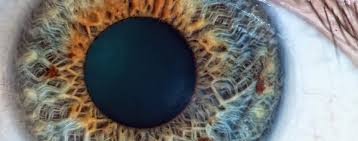Vision is a complex process involving the eyes and the brain working together. When neurological factors impact vision, specialized care may be required.
A neuro-optometrist is a healthcare professional uniquely positioned to assess and treat specific vision issues that arise due to neurological conditions.
Here is more information on the eye diseases a neuro-optometrist may address and how they approach treatment:
What Are Neuro-optometrists?
Neuro-optometrists are healthcare professionals who specialize in the connection between vision and the brain. They focus on addressing vision issues caused by neurological conditions, injuries, or diseases. Their expertise centers on understanding how the eyes and brain process visual information.
Unlike general optometrists, neuro-optometrists evaluate and manage problems that arise from complex neurological pathways affecting vision.
Patients who experience visual symptoms due to brain injuries, strokes, or neurodegenerative disorders may consult neuro-optometrists. This specialized care bridges the gap between routine eye care and neurological rehabilitation.
What Are Vision Issues?
Vision issues occur when there is a disruption in the normal function of the eyes or the neurological system responsible for processing visual input.
These issues can range from mild discomfort to significant impairment. Individuals may experience blurry vision, difficulty focusing, double vision, or a reduced field of view.
Vision problems can arise from age-related changes, brain injuries, or medical conditions. This includes Parkinson’s disease and attention deficit disorder (ADHD).
They often impact daily activities, including reading, driving, or recognizing objects, making it helpful for affected individuals to seek professional assistance.
What Are the Different Types of Eye Diseases?
Several eye conditions treated by neuro-optometrists stem from neurological issues or eye-brain communication problems.
Conditions include visual field loss, often seen in stroke survivors or patients with traumatic brain injuries, and convergence insufficiency, where the eyes struggle to work together when focusing on close objects.
These issues may lead to symptoms such as eye strain or difficulty with reading, requiring specialized care.
How Are Eye Diseases Treated?
Treatment approaches for neuro-visual conditions depend on individual needs but often include specialized therapies. Neuro-optometric rehabilitation therapy is a standard method that utilizes customized exercises and tools to retrain the brain-eye connection. These exercises help improve neural pathways involved in vision.
Other strategies might involve using corrective lenses, prism lenses, or vision aids tailored to reduce symptoms and enhance functionality.
By addressing the underlying neurological causes, neuro-optometrists aim to improve not only vision but also overall quality of life. They may collaborate with other professionals for cases requiring interdisciplinary support.
How Is Seeing a Neuro-optometrist Beneficial?
Seeing a neuro-optometrist offers a targeted approach to managing vision problems linked to the brain and neural pathways. Patients benefit from personalized care plans that address their specific symptoms and needs.
This tailored approach can lead to more effective relief from symptoms, such as dizziness or blurred vision, and a better ability to carry out daily activities.
Neuro-optometrists aim for sustainable progress rather than temporary fixes by addressing vision and its neurological underpinnings, helping individuals recovering from brain injuries or managing chronic neurological conditions.
Learn More Today
Neuro-optometrists provide specialized care for vision issues linked to neurological conditions, treating various eye diseases with tailored therapies and techniques.
Understanding the relationship between vision and brain function is a valuable step in seeking proper care.
If you or a family member is experiencing visual symptoms related to a neurological condition, consult a neuro-optometrist. Their expertise can offer the support and guidance you need to improve vision and quality of life.
Recommended Articles









Leave a Reply